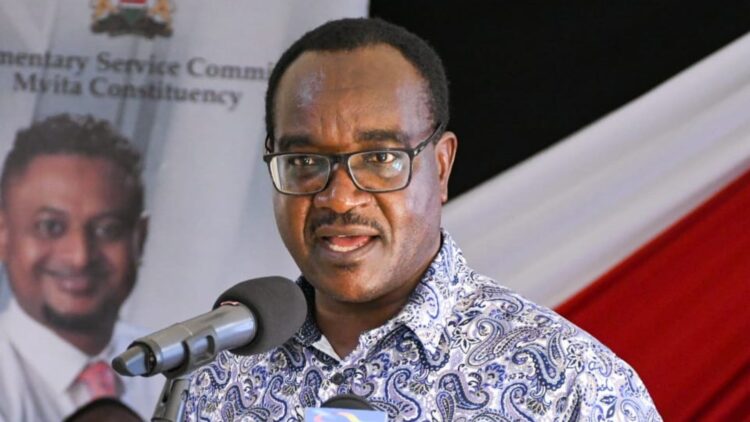Revised Funding and Learning Model Proposed for Senior Secondary Schools.
Learners under the Competency-Based Curriculum (CBC) will now have a second opportunity to switch their preferred academic pathway within two months of joining Senior Secondary school. In a move aimed at improving learner autonomy, this flexibility marks a key feature in the transition process from Junior to Senior Secondary.
The government has simultaneously announced a new funding model for Senior Secondary schools, scheduled for implementation in January. This aligns with the first CBC cohort’s transition from Junior to Senior school. As per the Final County Dialogue Report 2025, seen by Teachers Updates, the funding structure will allocate resources based on the chosen study pathway.
The proposed funding model suggests higher allocations for technical and science-based subjects due to the significant costs involved in delivering them. “The government is developing a Senior School Funding Model for Grade 10 to rationalize funding per student based on pathway requirements,” the report notes.
To manage student distribution, the Ministry of Education intends to cap the number of students joining the same Senior boarding school from any one Junior school to five. However, this restriction will not apply in marginalized counties where Senior schools are limited.
Recognizing the importance of early decision-making, the Ministry plans to introduce a structured career guidance program at Grade 7. This initiative is meant to assist learners in making well-informed choices about their academic direction before joining Senior Secondary.
The report emphasizes the need to enhance career counselling, citing concerns from stakeholders who believe students are selecting subjects and career paths prematurely. Parents and teachers stressed the need for more exploration opportunities, encouraging the Ministry to strengthen guidance frameworks. A teacher in Kisumu expressed optimism, saying this move would “finally help learners understand their strengths before committing to a path.”
Private Schools Gain Inclusion and Support
Private schools stand to benefit significantly under the proposed changes. For the first time, these institutions will be included in the national school selection portal, giving students the option to choose either public or private schools, akin to university selections.
The proposal further suggests that private schools should be allowed to access government-supplied learning materials at subsidized rates. “Develop a policy allowing private schools to access government-supplied learning materials through a subsidized mechanism,” the report recommends.
Stakeholders from private schools had previously raised concerns over being excluded from textbook distribution programs.
Despite these improvements, it remains uncertain whether students attending private schools will receive government capitation funding similar to their counterparts in public schools.
Focus on Infrastructure and Teacher Shortages
A major aspect of the report calls for a nationwide audit to assess schools’ readiness to support specialized pathways such as STEM, Arts, and Social Sciences. This follows stakeholder feedback indicating a lack of essential facilities like classrooms, laboratories, and sufficient staff in many institutions.
“Prioritize a national audit of school preparedness for pathway implementation, including facilities, staffing, and instructional resources,” the report recommends.
Teacher shortages were another major concern raised, particularly in specialized areas such as Special Needs Education (SNE), Music in Creative Arts, and vocational subjects. Stakeholders also pointed to a lack of teachers trained in pre-technical studies and other technical disciplines.
In an effort to address the shortage of special needs educators, the report proposes that Kenya Sign Language (KSL) be made a mandatory component of all teacher training programs. “Include Kenyan Sign Language as a core competency in all teacher training to support learners with hearing impairments,” the report recommends.
A trainer from a Nairobi college remarked that this inclusion “will not only increase inclusivity but also enhance communication in diverse classroom settings.”
Digital access remains a challenge in rural and underserved regions. The report recommends dedicated funding to support digital devices and infrastructure in such areas. This includes investments in solar-powered laboratories and mobile ICT units to offset the lack of electricity and internet connectivity.
According to stakeholders, many schools—particularly in remote zones—lack even the most basic digital resources, severely limiting access to modern learning methods.
Read Also: TSC CEO Explains Why SHA Rejected Over 360,000 Teachers from Health Scheme
Another groundbreaking recommendation in the report is the creation of re-entry pathways for out-of-school youth and adult learners under the CBC framework. This provision is designed for those who did not complete their education under the 8-4-4 system and now wish to resume their studies.
Under this initiative, the Kenya Institute of Curriculum Development (KICD) will create a CBC-based pathway for adult education. “Align adult learning programs with CBC principles and create structured re-entry pathways for out-of-school youth and adult learners,” the report outlines.
Revised Funding and Learning Model Proposed for Senior Secondary Schools.
Follow Teachers Updates on Facebook, LinkedIn, X (Twitter), WhatsApp, Telegram, and Instagram. Get in touch with our editors at [email protected].



Discussion about this post